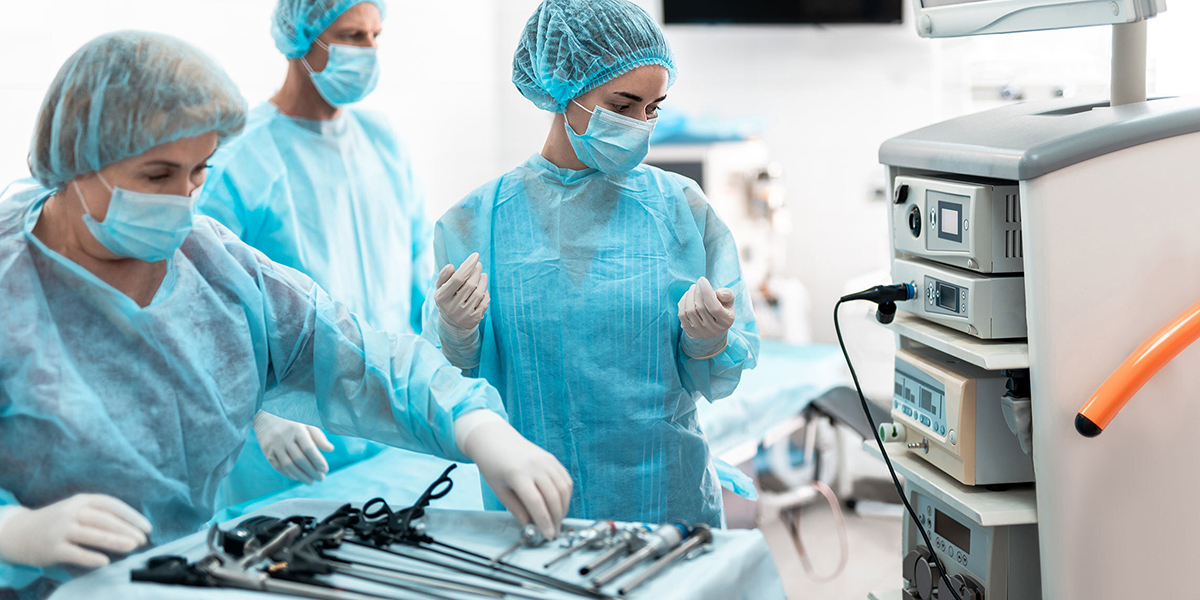Endometriosis
Endometriosis is an often painful condition in which tissue like that of the inner lining of the uterus is found ectopically outside of the uterus, such as on the ovaries, fallopian tubes, and peritoneal tissue lining the pelvic cavity. In rare instances, endometrial-like tissue can also be found beyond the pelvis.
About Endometriosis
In endometriosis, clusters of the endometrial-like tissue implant outside the uterine cavity in what is called a lesion. Endometrial implants behave much like healthy endometrium in that they thicken according to the phase of your menstrual cycle. However, this tissue has no way to pass from your body, which can exacerbate symptoms during menstrual periods. Endometriosis symptoms are often painful and debilitating and may result in formation of scar tissue and adhesions. Between 30% and 50% of women with endometriosis may experience infertility.
Types of Endometriosis:
Endometriosis is classified by the composition and location of the endometrial lesions.
Type of endometriosis include:
- Superficial endometriosis (the most common form): Shallow lesion(s) on the peritoneum, which forms the lining of the abdomen and pelvis.
- Deep-infiltrating endometriosis: Lesion(s) deep in the tissue of organs surrounding the uterus.
- Endometrioma: Fluid-filled sac(s) of endometriotic tissue, typically found on the ovaries.
Symptoms of Endometriosis
The symptoms of endometriosis can significantly impact your quality of life and may vary based on the location of the endometrial lesions.
Symptoms of endometriosis may include:
- Dyschezia (pain or cramping associated with bowel movements)
- Dysmenorrhea (severe menstrual cramps)
- Dyspareunia (pain associated with sex)
- Fatigue and bloating
- Infertility
- Pelvic or abdominal pain
Risk Factors for Endometriosis
If the pain and symptoms worsen as the endometriotic lesions become deeper and more fibrotic, infertility may occur as well as possible bladder or bowel dysfunction or pain with sex. Ovarian cysts, called endometriomas, can also form. Other structures may become damaged if infiltration occurs in the bladder, the rectum, or in the ureter, the duct that urine passes from the kidney to the bladder, which can potentially cause loss of kidney function.
Risk factors for endometriosis may include:
- Family history: Individuals with a family history of endometriosis are more likely to develop the condition.
- Health history: Endometriosis may be more common in people with short menstrual periods or cycles shorter than 28 days.
- Personal history: Disorders of the reproductive tract (Müllerian anomalies) increase the likelihood of developing endometriosis.
Treating Endometriosis
Many treatments are available to address the symptoms and complications of endometriosis. Anti-inflammatory drugs can alleviate your menstrual pain, and hormone therapy can be used to suppress your menstrual cycle. Pelvic floor physical therapy is helpful for the associated musculoskeletal conditions that contribute to myofascial and neurological pain. If you wish to become pregnant, you may also undergo fertility treatment. Surgery may be recommended to remove endometriotic tissue, and in more severe cases, your uterus and ovaries may be removed entirely. Your doctor will work with you to determine the best course of treatment.
Care Team Approach
Patients are cared for by a dedicated multidisciplinary care team, meaning you will benefit from the expertise of multiple specialists across a variety of disciplines. Our team of board-certified obstetricians and gynecologists, fellowship-trained minimally invasive gynecologic surgeons, pelvic floor physical therapists, advanced practice providers, behavior health therapists, dieticians, and more, who work together to provide unparalleled care for patients every step of the way. We also work closely with referring physicians and other partners in the community to schedule and coordinate any additional care services you may need.
We collaborate with our colleagues at the Dell Medical School and The University of Texas at Austin to utilize the latest research, diagnostic, and treatment techniques, allowing us to deliver comprehensive, compassionate care and provide a seamless experience for women from adolescence to menopause and beyond.



